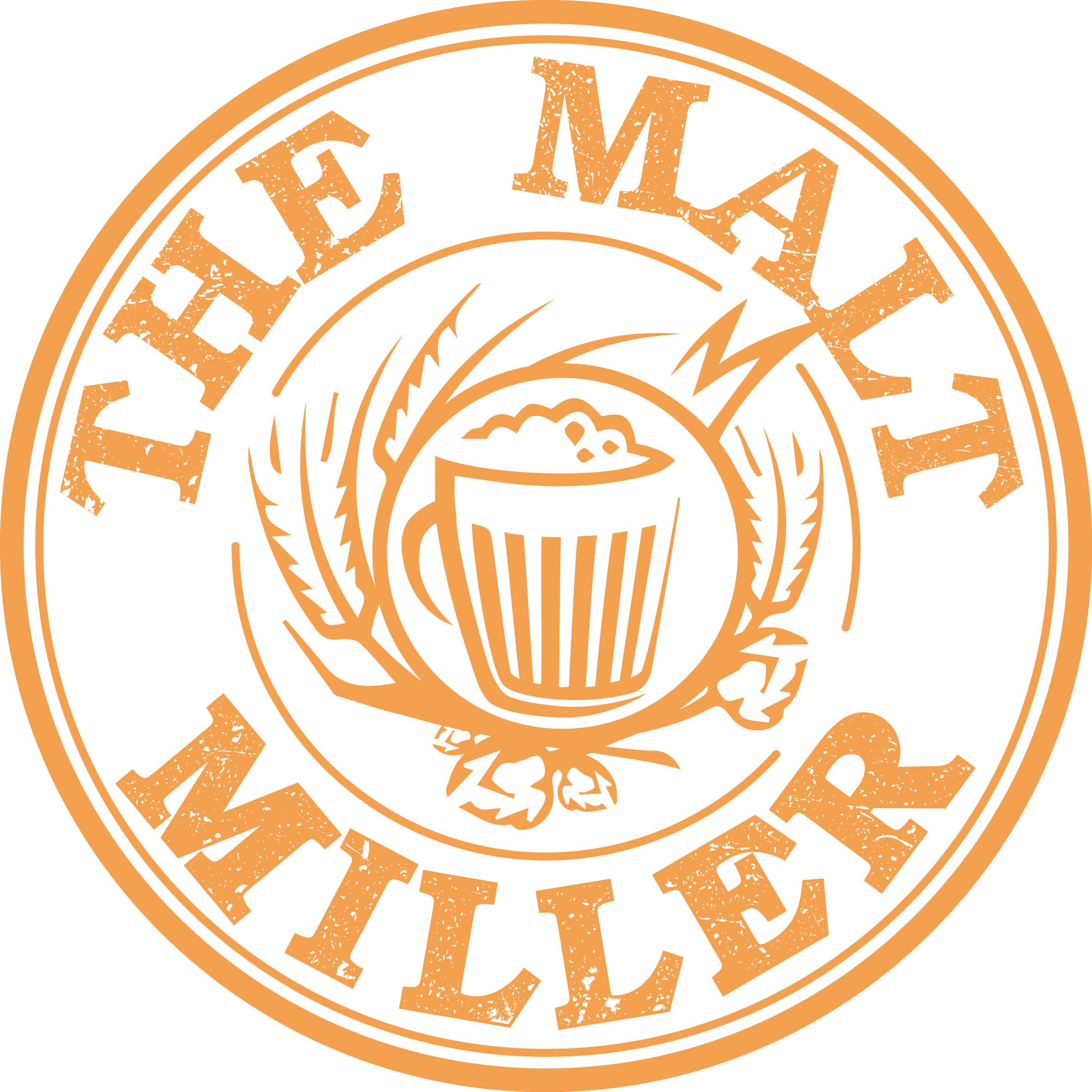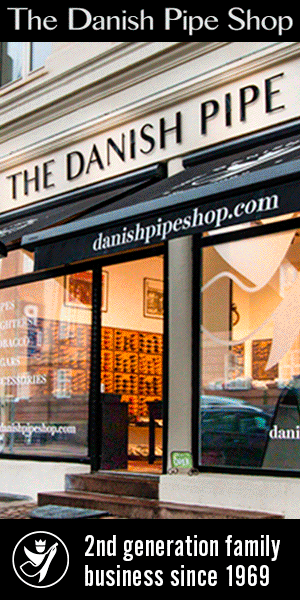Far better answers have already been given. I’ve homebrewed mead for 15 years or so. Mead is easier, but you need to wait it for a long time. I never did beer, too complicated for me!
Home Brew Help.
- Thread starter Franco Pipenbeans
- Start date
You are using an out of date browser. It may not display this or other websites correctly.
You should upgrade or use an alternative browser.
You should upgrade or use an alternative browser.
SmokingPipes.com Updates
Watch for Updates Twice a Week
True.. mead is a lot easier in some ways. Patience is a much greater challenge for me than anything else, so it's harder to make great meade. A bochet mead is probably my best accomplishment, and only because I gave my best friend two bottles of it 10 years ago. He's the type that sits on things until they are on the edge of forgotten, and then suddenly produces them at the right moment. When I tasted it, I thought.. there is no way in hell I made this.Far better answers have already been given. I’ve homebrewed mead for 15 years or so. Mead is easier, but you need to wait it for a long time. I never did beer, too complicated for me!
Pro tip.. if you make a bochet, you are boiling honey to essentially caramelize it. If you do this do it at night, especially if it is warm. I made the mistake of doing it late morning indoors on my kitchen stove with the hood vent blowing full blast. You are thinking smoke.. but no.. I had about 1000 honey bees hanging off of that vent trying to get in. I wish I had taken a picture, because there was a legit mat of them on one entire side of my house.
Yeah, made bochet many times. It’s quite easy to burn too, and it’s no salvageable if you do. And yes on all bees in a 2km radius coming to your kitchen. Bochet is also great oaked.True.. mead is a lot easier in some ways. Patience is a much greater challenge for me than anything else, so it's harder to make great meade. A bochet mead is probably my best accomplishment, and only because I gave my best friend two bottles of it 10 years ago. He's the type that sits on things until they are on the edge of forgotten, and then suddenly produces them at the right moment. When I tasted it, I thought.. there is no way in hell I made this.
Pro tip.. if you make a bochet, you are boiling honey to essentially caramelize it. If you do this do it at night, especially if it is warm. I made the mistake of doing it late morning indoors on my kitchen stove with the hood vent blowing full blast. You are thinking smoke.. but no.. I had about 1000 honey bees hanging off of that vent trying to get in. I wish I had taken a picture, because there was a legit mat of them on one entire side of my house.
Best thing I ever made was distilled bochet, a big expense of effort and honey but the result had friends asking me to BUY the measly 500ml I made.
If you like cleaning and sanitizing.. You'll enjoy home brew. I hate washing all those crap, especially the bottles. Sure, there are jet washers. Sure, it can be fun after having six bottles of beer. But, after few years of brewing, I figure it ain't that bad buying good beer from supermarkets.
Back when I drank, my wife and I used to fool around with the home brew kits and had great success. Lots of fun, although not a very high yieldWhat do you think of the all in one home brew “kits” i know a couple people that use them and seem to be successful and love them, perfect for the person that just wants brew without the hassle i guess.
i know one of them use one of NB’s kits like this
Northern Brewer - Essential Brew. Share. Enjoy. HomeBrewing Starter Set, Equipment and Recipe for 5 Gallon Batches (Block Party Amber) https://a.co/d/5nLP40K
Awesome; thank youHey hey!
So IDK what you'll have available to you over in the UK vs. what we have here in the US, but I've been homebrewing since 2010 and worked in a commercial brewery for a few years as well. I can give you a general idea of what you'll need! Depending on what you end up wanting to do the initial cost for all the equipment can get pricey but the cost of the beer it's self much lower so it works out. This is gonna be a big info dump so strap in! I hope it's more helpful than overwhelming!
The two schools are basically what's called extract brewing where the mashing step is taken care of for you, or all grain which is what breweries do. I would recommend doing 5-gallon batches to start, either way, you'll get the most out of the beer with room for loss.
Also, you should start with extract and see if the bug bites you and you want to go all the way to all grain which is more work and equipment, but generally more control and even cheaper ingredient cost.
I'll break down the steps and ingredients for doing an extract brew so you have an idea of what you're looking at work-wise and what the equipment I'll tell you about later is actually for, I think this will also answer some of your questions too.
The actual basic Process:
- Get you some malt extract. There are a ton of recipes out there and even places that make kits for specific beer styles or even copies of popular beers. The extract comes in two forms dry or liquid, dry is a powder and liquid is kin to molasses or Lyles golden syrup. They both work the same and will yield similar results.
- You'll need hops, again follow a recipe or get a kit that comes with them or tells you what to get.
- You'll need Yeast, see above, there are all different kinds of yeast, and you'll again have a choice between liquid and dry. I prefer liquid, I find it more reliable and there are companies that make pouches that are pitch ready (aka ready to go straight into 5 gal of beer without extra effort).
- Water! Tap is fine for this as long as your tap is potable and doesn't taste bad.
- Some kind of sanitizer, you can and should get brewing-specific stuff from an online shop or local homebrew store if you have one.
So there's a bunch of clean-up in there too, and it seems like a lot but this is generally maybe 2-4 hours of work for the boiling day, and then an hour or two for bottling once you get there.
- You'll heat generally 6+ gallons of water for a 5-gallon end result. (I'll cover equipment for this down the line) You're gonna lose some liquid during the boil and fermentation which is why you start with more.
- Add your extracts, and mix well. Check your beginning gravity (sugar content)
- Bring this mixture now called "wort" to a boil.
- Add your hops.
- Boil for 60 minutes.
- Cool down. This can be done in many ways you generally want to do it as quickly as possible and keep everything as sanitary as possible from now on. It needs to get under 70F at least before you add yeast.
- Transfer the beer to your sanitized fermentation vessel (could be a bucker or carboy) leaving behind the hop mess. Check your pre-fermentation gravity.
- Add yeast, mix well, put the airlock on, and now you wait. Leave it in a dark warm-ish place, a closet or pantry that's 65-75F is perfect.
- After at least 4 days but closer to a week you'll check your gravity again. This will tell you how much sugar the yeast ate and how close it is to being finished fermenting. Your recipe will tell you what to look for.
- Once that is done, you can allow it to age another week in that same vessel or transfer it to another sanitized vessel for a "secondary fermentation" that will clean up the beer and get more of the yeast out.
- At this point, you'll transfer it again to a sanitized bottling vessel usually a bucket with a tap at the bottom. Stir in a little sugar, or malt extract so the beer will carbonate in the bottles.
- You'll need at least 54 bottles if you ended up with all 5 gallons, but it will probably be less, they need to be sanitized along with the caps.
- You'll fill and cap the bottles, and then leave them in a dark warm place again for roughly two weeks, this gives them plenty of time to carbonate.
- Chill and Enjoy!
My biggest tip would be to try and find or even order a starter kit like this one: Deluxe Homebrew Starter Kit - https://www.northernbrewer.com/products/deluxe-brewing-starter-kit
That's gonna have a lot of what you need already in it, and then you can add a boil kettle I recommend something with a tap at the bottom or adding one if you're handy, picking up to pour, or using a siphon to transfer the beer around is a physical pain/danger or slow. You also want to get a chiller if which I do highly reccomend, you want to get the beer cooled down quickly and cleanly and a chiller will make your life much easier.
You will need a stove that can fit the big kettle or your best bet is an outdoor burner like what's in this kit that also comes with the kettle which is about the right size for 5-gallon batches: 8 Gallon Brew Kettle & Burner Kit - https://www.northernbrewer.com/products/8-gallon-brew-kettle-burner-kit
That's the gist of it! Welcome to the hobby and do keep us posted on what you're up to!
Cheers!
As you are in the UK have a look around this site,equipment starter kits and malt extract kits
and Rob is a good guy,Although I am in Greece I used him for all my requirements until Brexit added 23% to the costs

 www.themaltmiller.co.uk
www.themaltmiller.co.uk
I have been brewing on and off for 40 plus years starting with kits then BIAB and for many years "all grain" 3 vessel ,now using a Braumiester ,
I agree if you like English real ale then the Graham Wheeler books as mentioned above are a good start,often found second hand for a few pounds
and Rob is a good guy,Although I am in Greece I used him for all my requirements until Brexit added 23% to the costs

New to Brew - The Malt Miller
Want to start brewing beer at home? It's easier than you might expect. We stock all the products you need and can offer expert advice to help get you started.
I have been brewing on and off for 40 plus years starting with kits then BIAB and for many years "all grain" 3 vessel ,now using a Braumiester ,
I agree if you like English real ale then the Graham Wheeler books as mentioned above are a good start,often found second hand for a few pounds
Also if you want to delve deeper
this forum may be of interest as it is UK focused most tend to be US ,they have different ideas and access to different products
this forum may be of interest as it is UK focused most tend to be US ,they have different ideas and access to different products
Home Brewing & Beer Making at Jim's Beer Kit! | How to Brew
Home brew guides for making beer from malt grain, malt extract and beer kits with step-by-step instructions. Your questions answered on our home brew forum
www.jimsbeerkit.co.uk
Been brewing over 15 years now. Great advise in this thread. I've found liquid yeast to be very good but I ALWAYS make a starter. You won't need to with dry yeast so I'd stick with that for now. Cleanliness and temp control are key for producing great beer.
If you are in the UK, check out the homebrewforum.co.uk. There are lots of great folks on there to help.
Happy brewing!
If you are in the UK, check out the homebrewforum.co.uk. There are lots of great folks on there to help.
Happy brewing!
I've done the whole home brew thing. Made some pretty good stuff from scratch back in the day. I used to crack/grind my own barley, roast it as well, mash, rack, hop, ferment, krausen in bottle for carbonation.. It just got too damn tedious for me and I sold all my stuff and never looked back. This was in the mid 90s. Now I have a decent job so I just let the pros do it and bite the inflation bullet. I do however wish I had used my skills to start a brewery. Alas, opportunities lost 







